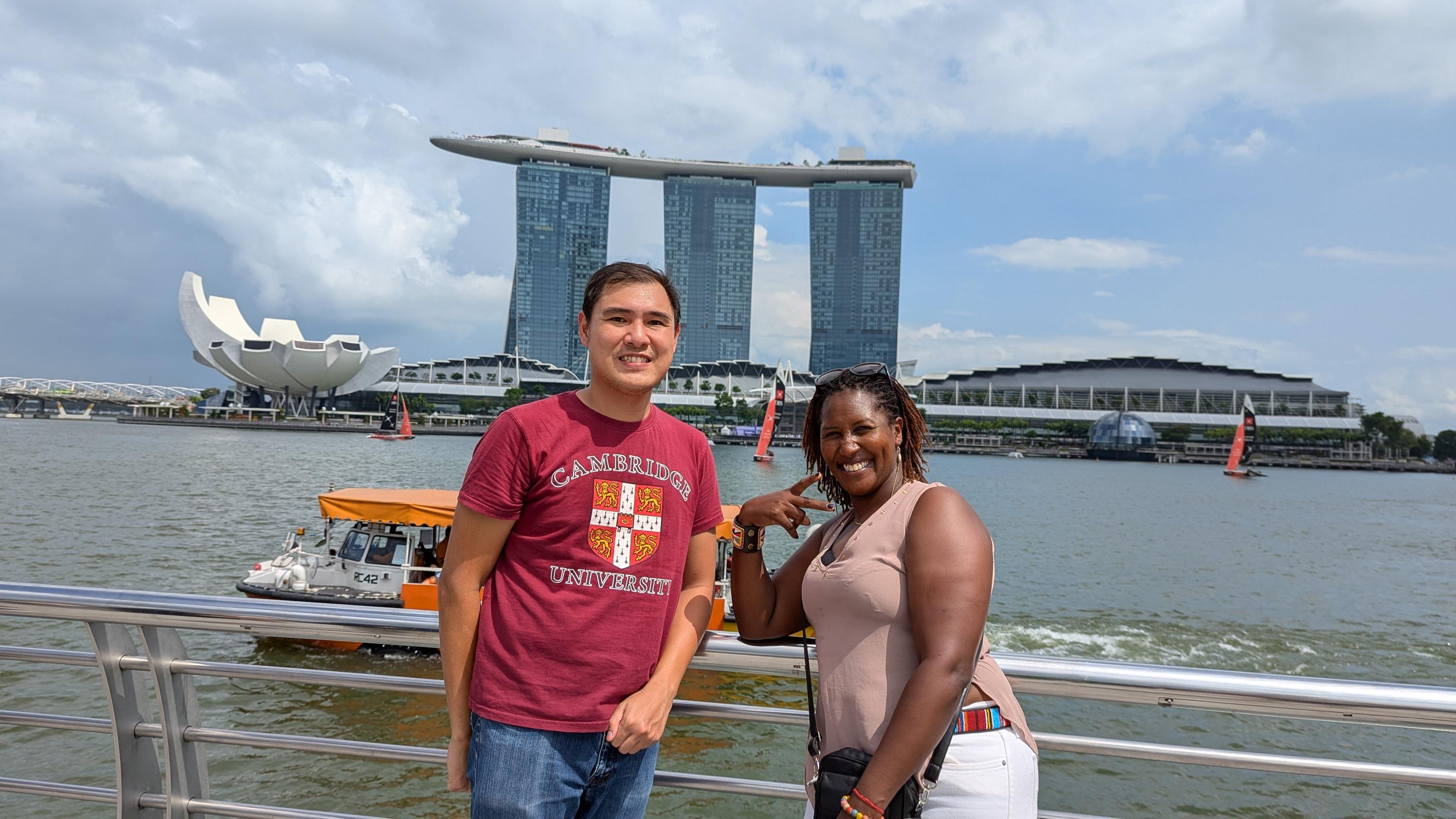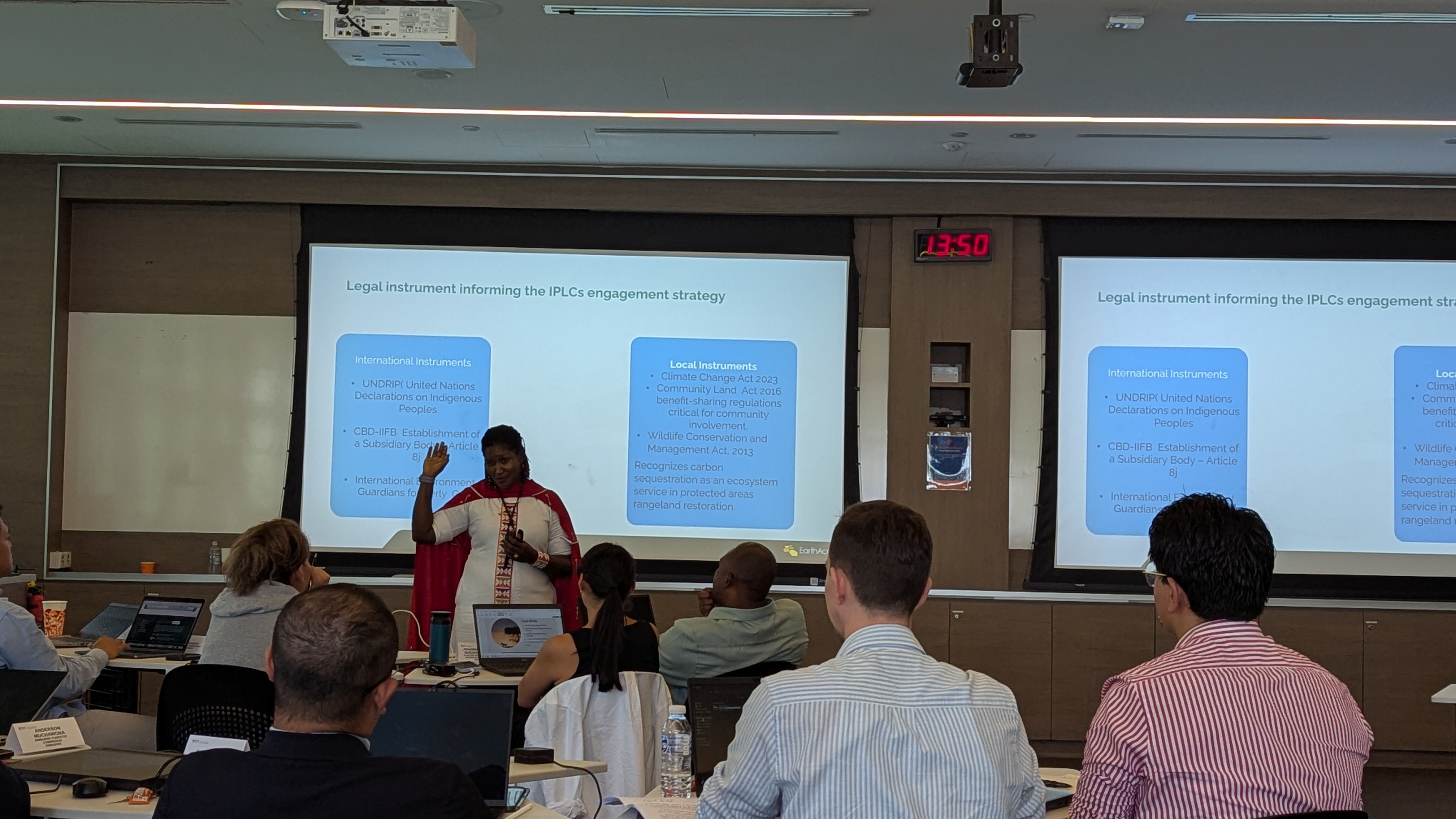
Submitted by Albina Mamedova on Thu, 17/04/2025 - 20:18
The University of Cambridge Conservation Leadership Alumni Network (UCCLAN) is pleased to share details of a recent collaboration between two alumni who delivered an international capacity-building initiative, showcasing the strength of our global conservation network.
Leo Nyein Zaw Ko (2022-23) and Nkamunu Patita (2022-23) collaborated to deliver a training programme for the Singapore Cooperation Programme (SCP), an initiative established by the Government of Singapore in 1992 to share technical expertise with developing countries.
Leo, currently a Research Associate for Continuing Education and Training at the NUS Centre for Nature-based Climate Solutions, developed and facilitated a five-day course on Nature-based Carbon Project Development, Measurement, Reporting and Verification. The training was attended by 21 mid-senior level government officers representing 17 countries across five continents.
"When planning the course curriculum, we recognised the importance of incorporating a bottom-up perspective from a practitioner in the field," Leo explains. "Indigenous peoples and local communities are increasingly central to conservation discussions, as evidenced at CBD COP 16. Their roles as ecosystem stewards are essential to meaningful conversations about carbon project development."
This understanding prompted Leo to invite fellow UCCLAN alumnus Nkamunu Patita, Co-Founder of EarthAcre, to contribute her expertise. During the fourth day of the programme, Patita delivered a 90-minute lecture on her experience developing soil carbon and nature asset projects in southern Kenya, including the Masai Mara region.
"The programme offered a strategic platform to engage with policymakers who are key stakeholders," Patita notes. "It provided an opportunity to highlight the challenges in carbon development, particularly regarding transparency in benefit sharing, and to advocate for improved approaches to project development and implementation with Indigenous communities."
The session was particularly well-received by African participants, who found Patita's work both inspiring and directly applicable to their own national contexts and local communities.
This collaboration exemplifies the distinctive value of the UCCLAN network in connecting conservation professionals across the globe. "The strength of the UCCLAN network lies in bringing together individuals from diverse global regions, each addressing various conservation challenges on the ground," says Leo. "This diversity facilitates mutual support and enables us to leverage our collective expertise to create meaningful impact."
The timing of this training is particularly relevant given Singapore's increased carbon pricing—from SGD $25 per tonne in 2024 to nearly double at SGD $45 in 2026—which has generated significant interest from both private and public sectors in international carbon trading under Article 6 of the Paris Agreement and the voluntary carbon market.
This professional partnership demonstrates how UCCLAN continues to function as a valuable professional resource for alumni well beyond their time at Cambridge.

